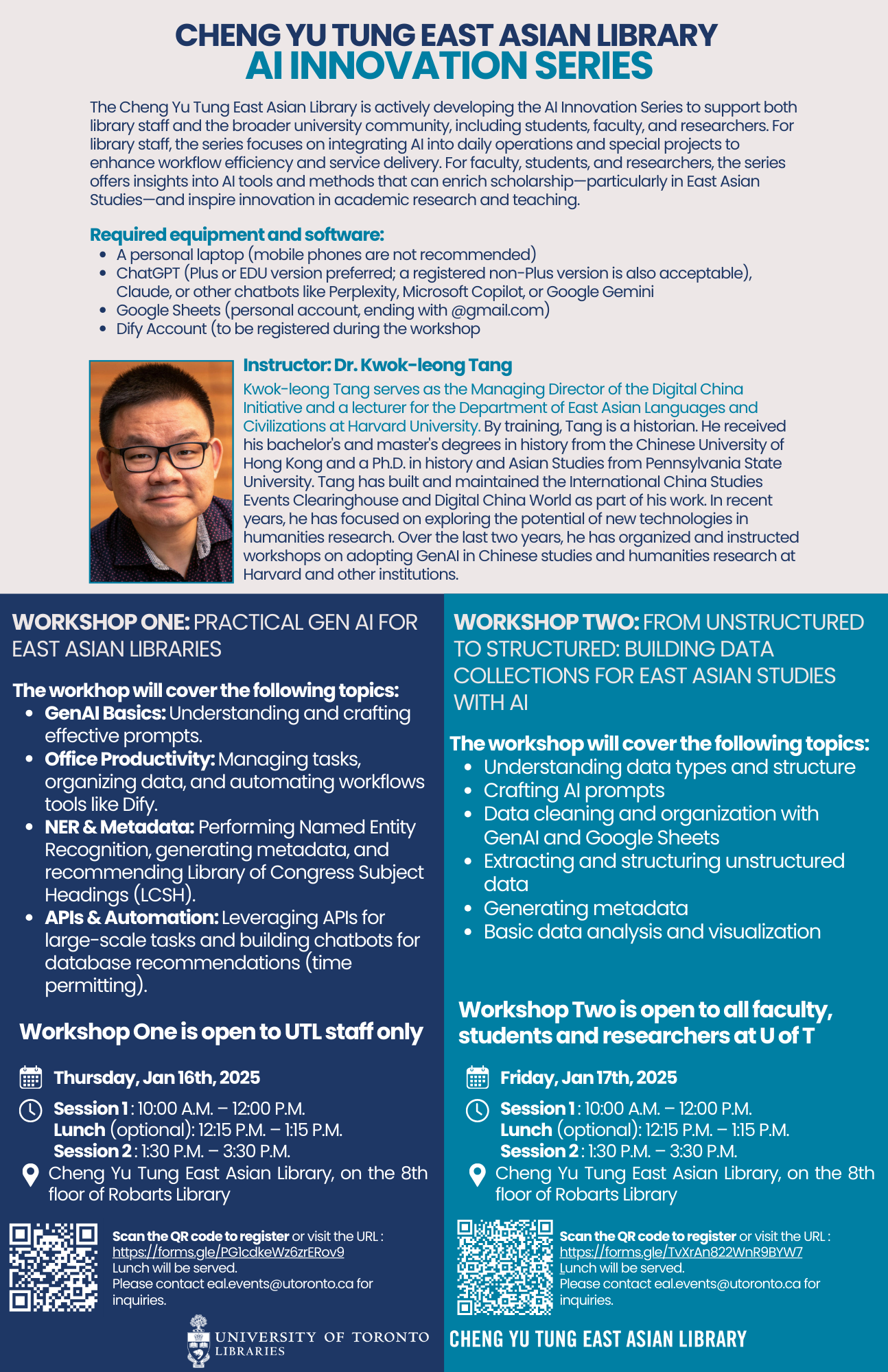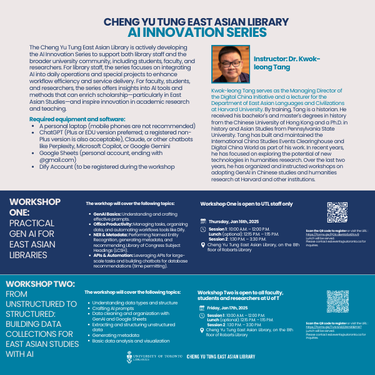
The Cheng Yu Tung East Asian Library is actively developing the AI Innovation Series to support both library staff and the broader university community, including students, faculty, and researchers. For library staff, the series focuses on integrating AI into daily operations and special projects to enhance workflow efficiency and service delivery. For faculty, students, and researchers, the series offers insights into AI tools and methods that can enrich scholarship—particularly in East Asian Studies—and inspire innovation in academic research and teaching.
Required equipment and software:
- A personal laptop (mobile phones are not recommended)
- ChatGPT (Plus or EDU version preferred; a registered non-Plus version is also acceptable), Claude, or other chatbots like Perplexity, Microsoft Copilot, or Google Gemini
- Google Sheets (personal account, ending with @gmail.com)
- Dify Account (to be registered during the workshop.
Workshop One: Practical GenAI for East Asian Libraries
Tailored for library staff in the East Asian Library, but open to all UTL staff
Date: Thursday, January 16, 2025
- Session 1: 10:00 AM – 12:00 PM
- Lunch: 12:15 PM – 1:15 PM (Lunch provided to workshop participants)
- Session 2: 1:30 PM – 3:30 PM
- RSVP: https://forms.gle/FbYMtDmfCwL1278N6
This workshop is designed to provide participants with practical knowledge and skills for effectively integrating GenAI into their library workflows. In these sessions, we will explore how Generative AI (GenAI) can help streamline common tasks faced by East Asian library staff in their daily work. Library staff from other areas may also find these workshops useful. The sessions will cover, but are not limited to, the following topics:
- Understanding the capabilities and limitations of GenAI
- Creating effective prompts
- Managing office administrative tasks
- Cleaning and organizing data
- Performing Named Entity Recognition (NER)
- Generating metadata
- Recommending Library of Congress Subject Headings (LCSH)
- Leveraging APIs for repetitive and large-scale tasks
- Automating workflows using tools like Dify (time permitting)
- Building chatbots for database recommendation (time permitting)
Workshop Two: From Unstructured to Structured: Building Data Collections for East Asian Studies with AI
This workshop is designed for East Asian Studies graduate students and faculty interested in integrating digital tools and methods into their learning and research processes. Participants will gain practical skills in utilizing AI-assisted tools for East Asian Studies research. Students, faculty, and researchers in the humanities more broadly may also find the workshop useful.
Date: Friday, January 17, 2025
- Session 1: 10:00 AM – 12:00 PM
- Lunch: 12:15 PM – 1:15 PM (Lunch provided to workshop participants)
- Session 2: 1:30 PM – 3:30 PM
- RSVP: https://forms.gle/PCWAcBU7Uy8dxYox5
In these two two-hour hands-on workshops, participants will learn how to transform an unstructured corpus into structured data, making it suitable for databases or data analysis for both qualitative and quantitative approaches. Throughout the session, participants will explore the following topics:
- Understanding the nature and types of data
- Crafting effective prompts for AI tools
- Cleaning and organizing data using GenAI and Google Sheets
- Extracting relevant data from unstructured sources
- Generating metadata for structured datasets
- Performing basic data analysis and visualization
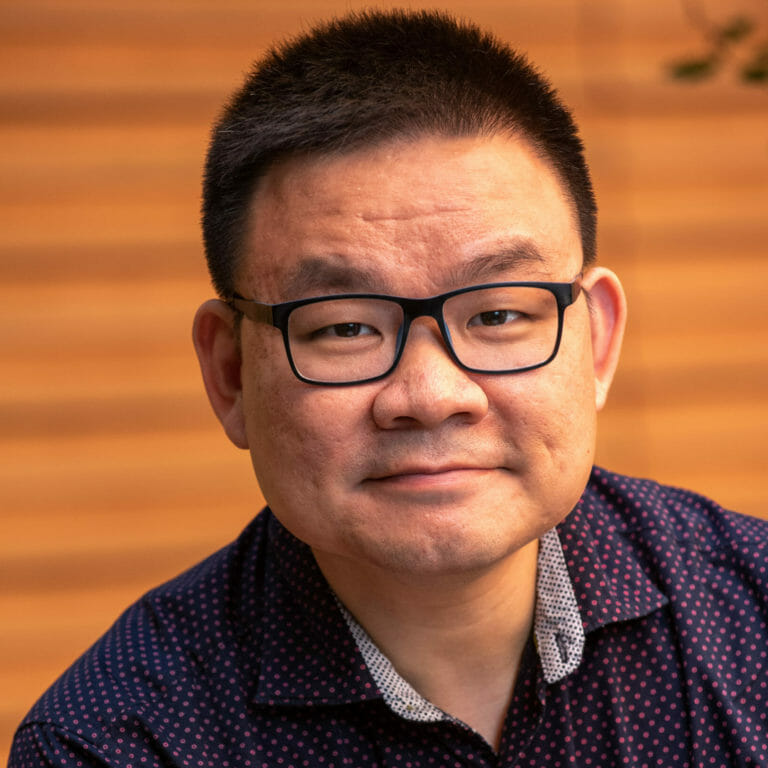
Instructor: Kwok-leong Tang serves as the Managing Director of the Digital China Initiative and a lecturer for the Department of East Asian Languages and Civilizations at Harvard University. By training, Kwok-leong is a historian. He received his bachelor's and master's degrees in history from the Chinese University of Hong Kong and a Ph.D. in history and Asian Studies from Pennsylvania State University. Kwok-leong has built and maintained the International China Studies Events Clearinghouse and Digital China World as part of his work. In recent years, he has focused on exploring the potential of new technologies in humanities research. Over the last two years, he has organized and instructed workshops on adopting GenAI in Chinese studies and humanities research at Harvard and other institutions.
If you enjoy similar events, follow us on Facebook, X (Twitter), Instagram for the latest updates!
Click here to view a PDF version of the event poster.
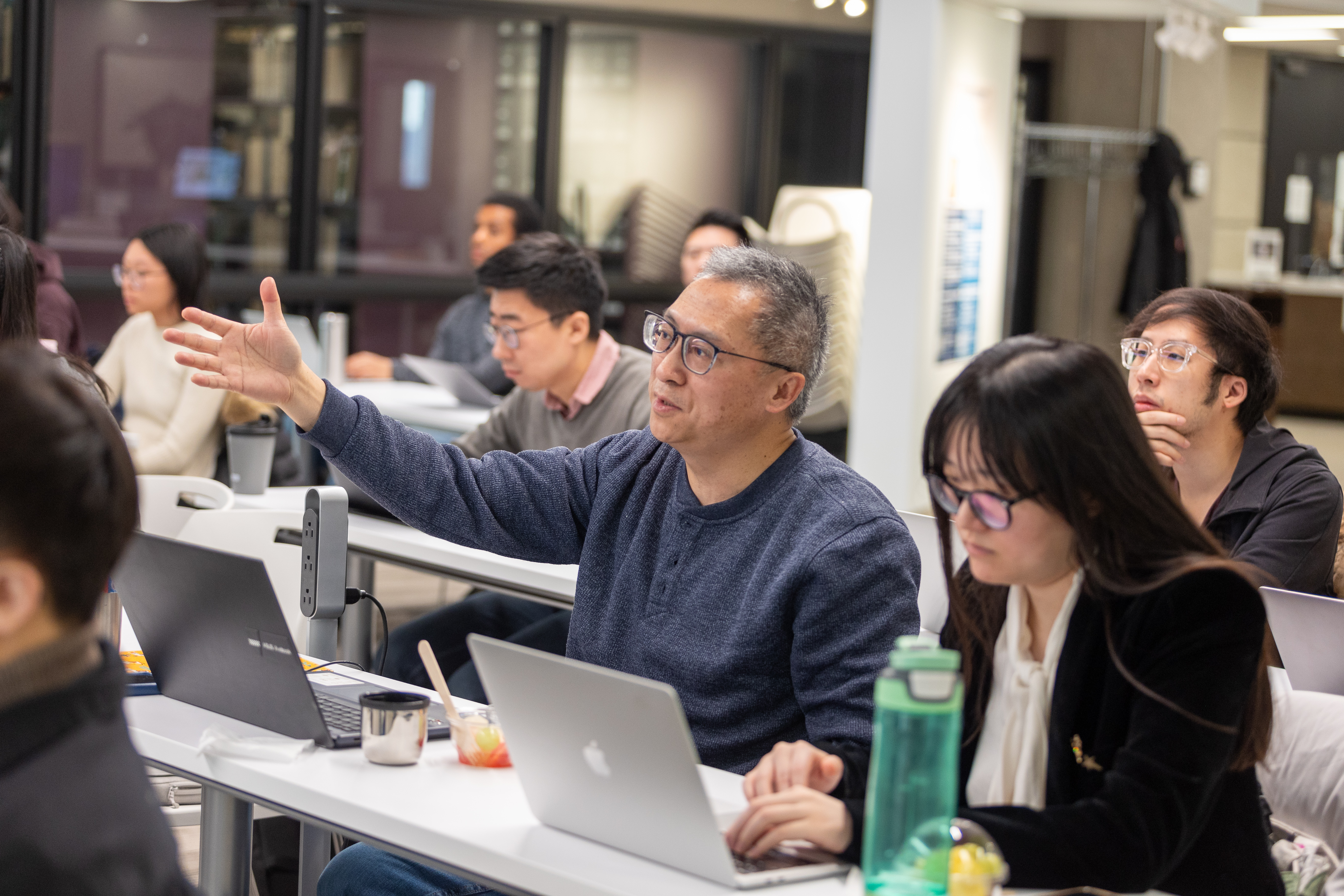 |
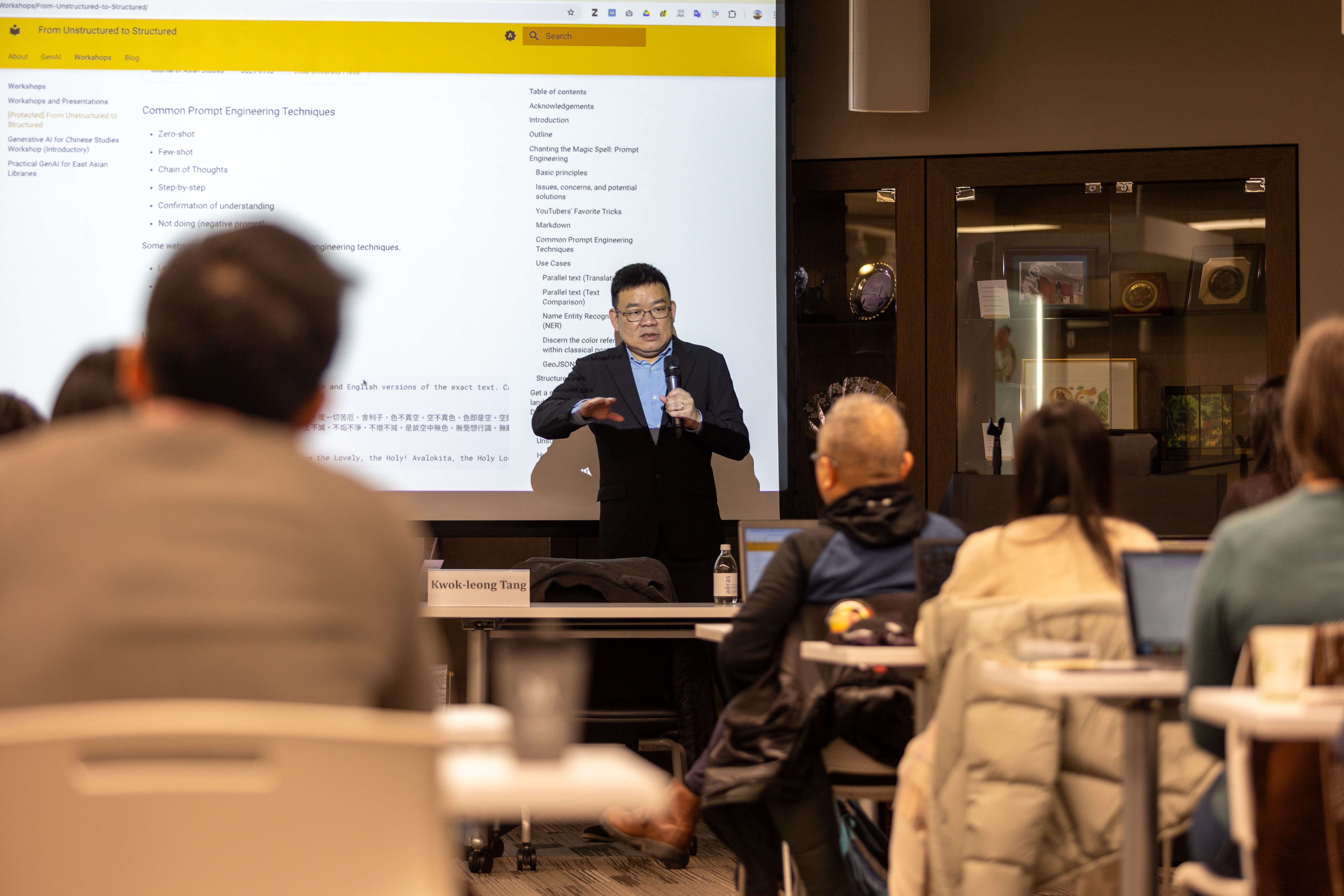 |
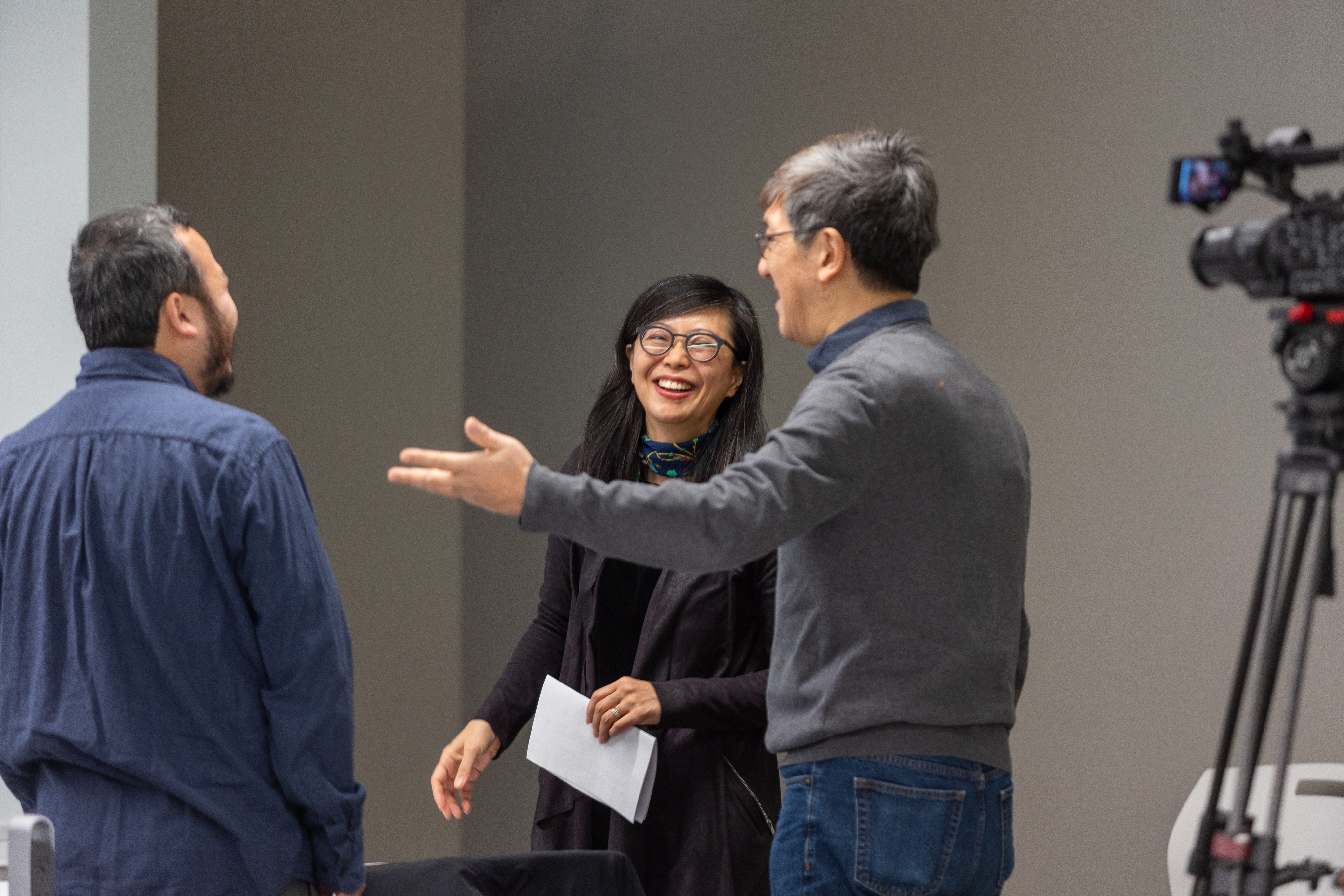 |
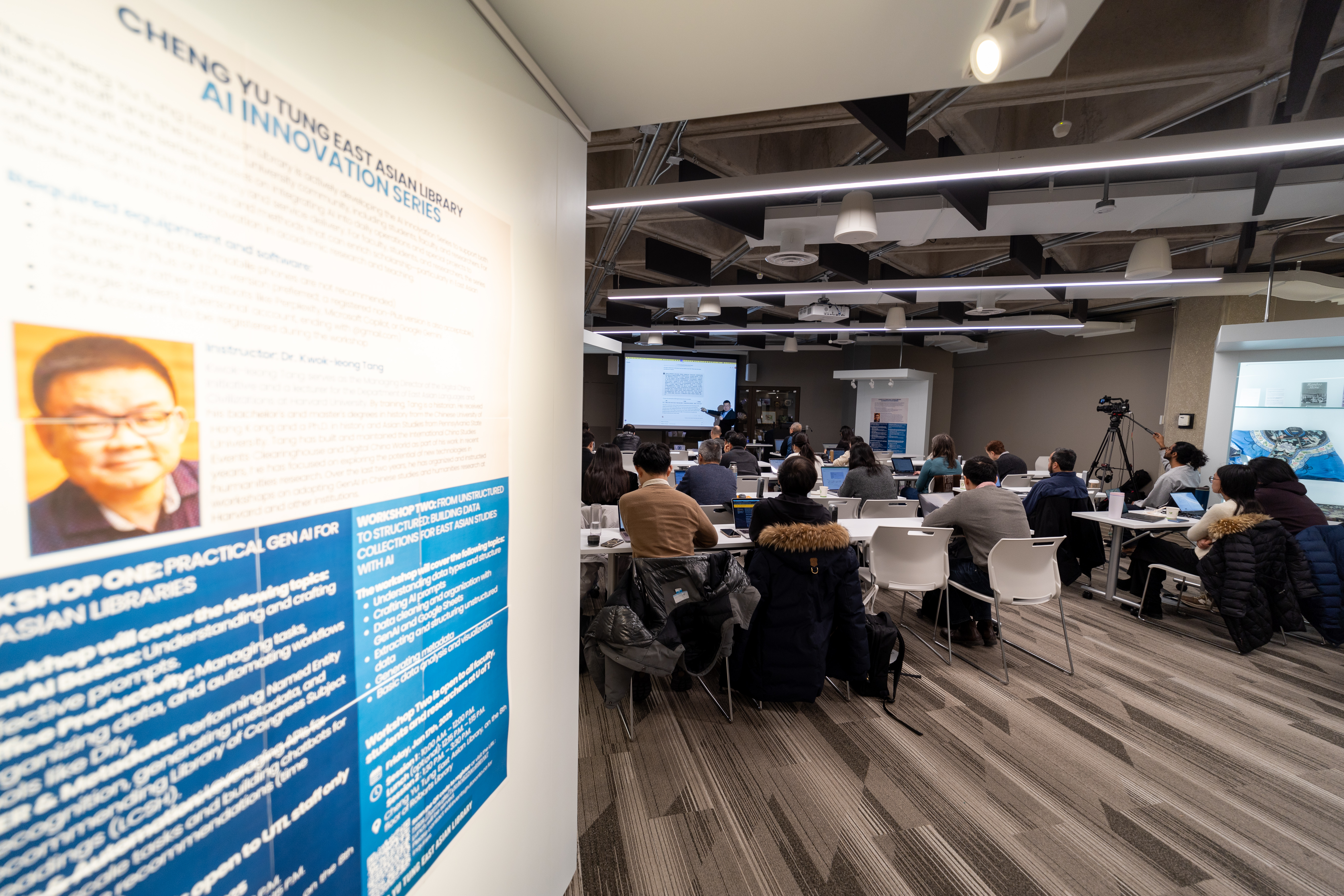 |
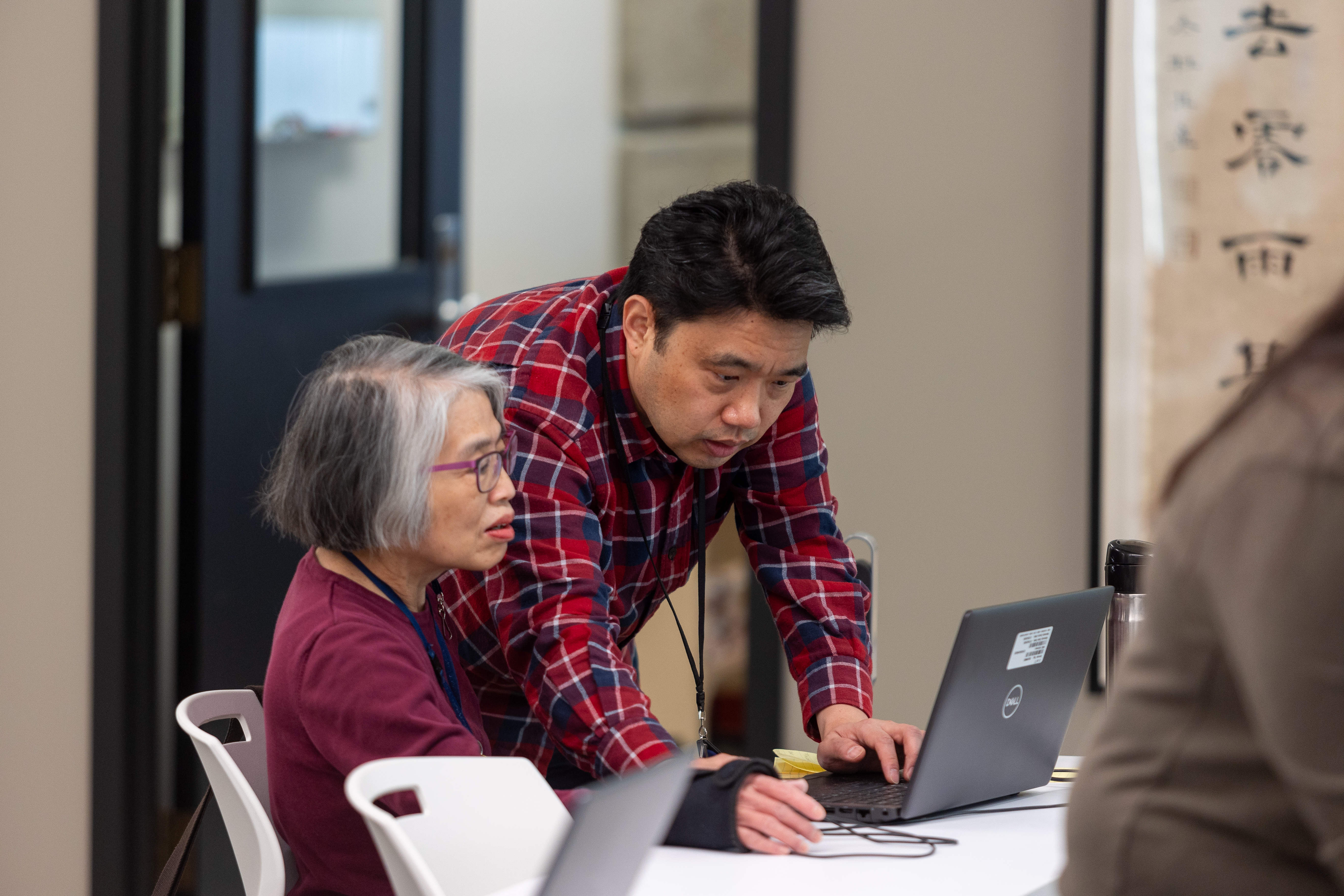 |
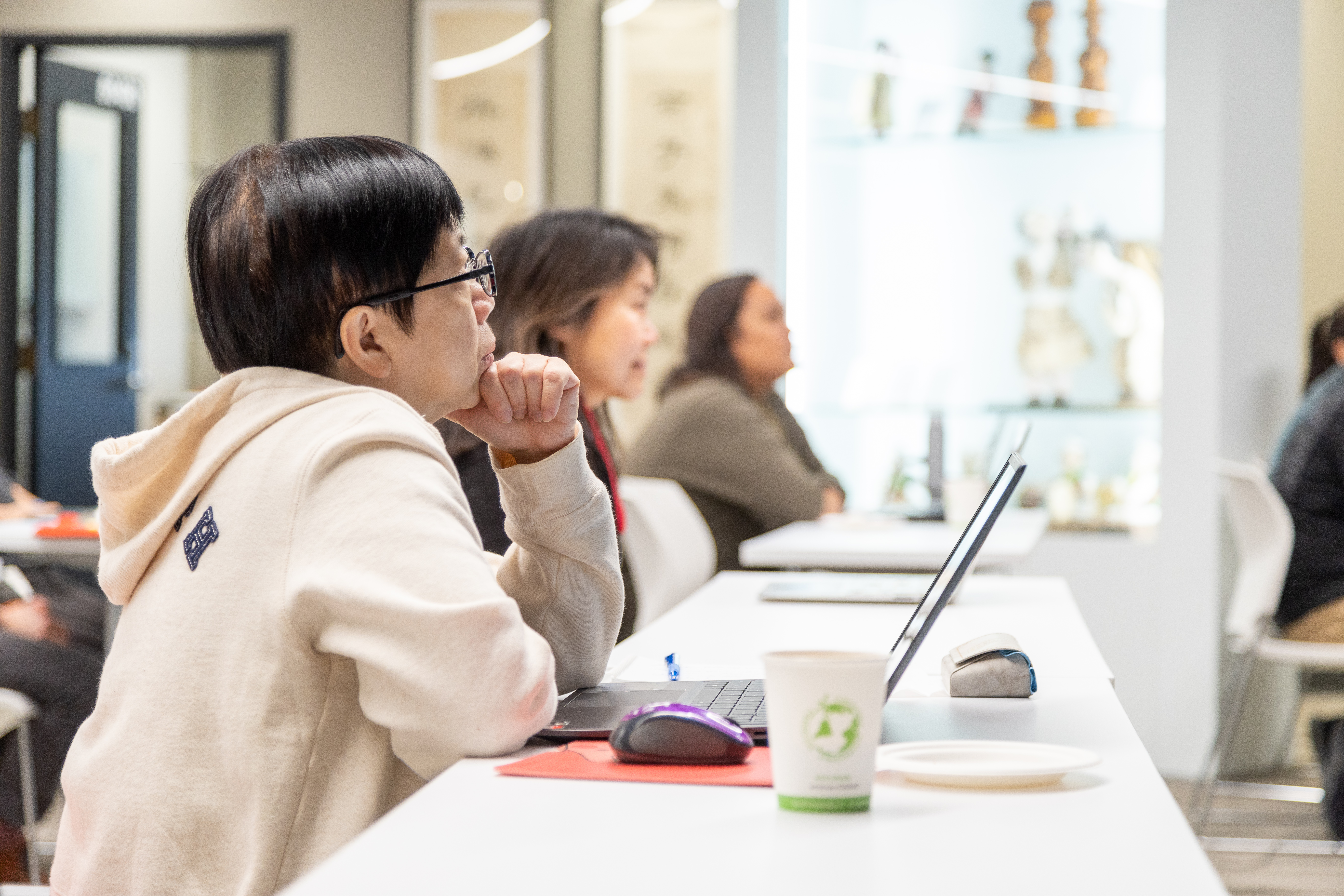 |
Click here to view event photos from the online forum
View the Event Recording on YouTube
AI Innovation Series: Workshop 1 - Practical Gen AI for East Asian Libraries (Part 1)
AI Innovation Series: Workshop 1 - Practical Gen AI for East Asian Libraries (Part 2)
AI Innovation Series: Workshop 2 - Building Data Collections for East Asian Studies with AI (Part 1)
AI Innovation Series: Workshop 2 - Building Data Collections for East Asian Studies with AI (Part 2)
View the Event Recording on MyMedia
AI Innovation Series: Workshop 1 - Practical Gen AI for East Asian Libraries (Part 1)
AI Innovation Series: Workshop 1 - Practical Gen AI for East Asian Libraries (Part 2)
AI Innovation Series: Workshop 2 - Building Data Collections for East Asian Studies with AI (Part 1)
AI Innovation Series: Workshop 2 - Building Data Collections for East Asian Studies with AI (Part 2)
